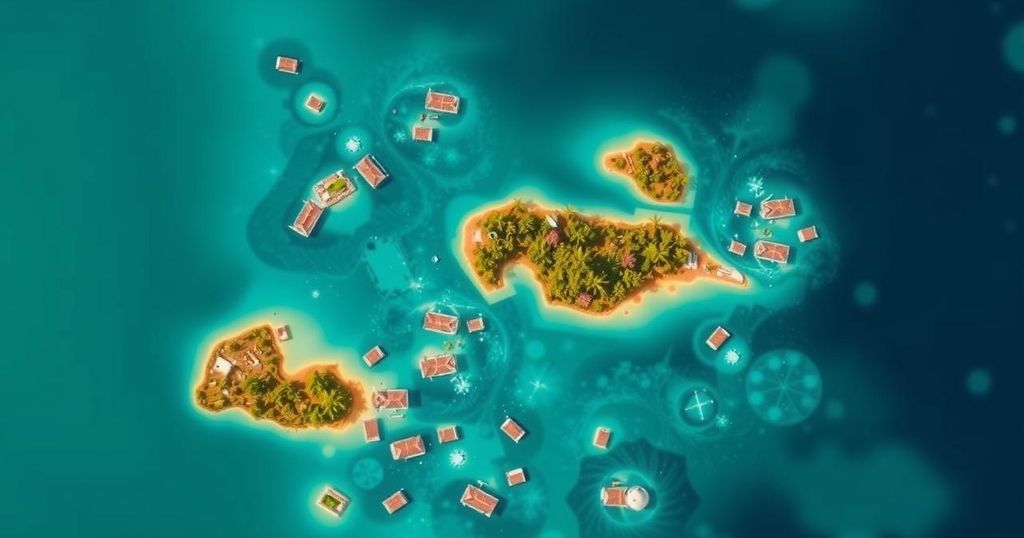Vanuatu’s Case Before the ICJ: A Call for Global Accountability on Climate Change
Vanuatu is leading a significant case at the International Court of Justice to push for a ruling on states’ obligations to prevent climate change, aiming to harness moral authority rather than blame. Supported by over 130 nations, the initiative underscores the existential challenges faced by small island countries threatened by climate change, as they seek greater access to climate finance and a stronger voice on the global stage.
In an effort to tackle the challenges of climate change, the Pacific nation of Vanuatu has taken the initiative to present a critical case before the International Court of Justice (ICJ). According to Vanuatu’s Attorney-General Arnold Kiel Loughman, this case aspires to transcend the limitations of existing international negotiations by the United Nations and incite more vigorous global action. Rather than seeking to attribute fault or enforce punishment, Vanuatu aims for the ruling to possess significant moral authority, emphasizing that it concerns not only the interests of specific island nations but the global community as a whole. In 2023, over 130 nations endorsed Vanuatu’s call at the U.N. for the ICJ to offer an advisory opinion concerning states’ responsibilities under international law related to the prevention of climate change. They also seek to understand the legal ramifications of failing to act. The small nation, consisting of approximately 330,000 citizens, is advocating for an emissions levy imposed on global shipping practices. Although the ICJ’s ruling will be nonbinding, it could still have a considerable impact on international discourse surrounding climate responsibilities. Public hearings are scheduled to commence on December 2, following an impressive number of written statements—91 in total—submitted to the court. This count marks a record for advisory proceedings. Among the contributors, both China and the United States submitted written statements, yet did not support the U.N. General Assembly resolution calling for the advisory opinion. Loughman noted that opposing parties, particularly the two largest producers of greenhouse gases, will likely argue against liability for climate change damages, using various justifications to distance themselves from responsibility. He indicated that Vanuatu’s endeavor is not solely about their plight but amplifies the concerns of many small island nations that often feel sidelined on the global stage, despite contributing negligibly to emissions. The potential repercussions of climate change are severe for these nations, who face threats from intensified tropical storms and rising sea levels, endangering their very existence. Access to climate finance remains a pressing concern, with many island nations yet to see tangible benefits from numerous climate negotiations. Loughman expressed hope that a ruling from the ICJ will endow them with invaluable moral authority—a decision from such a prestigious institution could not be easily dismissed in discussions regarding climate financing. With the Intergovernmental Panel on Climate Change’s findings highlighting human activities as the unequivocal cause of global warming, the stakes are alarmingly high. The window to achieve the internationally recognized target of limiting temperature rise to 1.5 degrees Celsius is rapidly closing.
The current discourse surrounding climate change has placed significant pressure on global leaders to address the pressing issues raised by rising temperatures and their corresponding effects. Small island nations, such as Vanuatu, are among the most vulnerable to climate change, experiencing devastating impacts from extreme weather events and rising sea levels. The International Court of Justice (ICJ) serves as a critical forum for nations to bring forth their concerns and seek solutions that prioritize environmental sustainability and social justice.
The case brought by Vanuatu seeks to shift the narrative surrounding climate change responsibilities by appealing to global moral standards rather than punitive measures. With widespread support from other nations, Vanuatu aims to secure a landmark advisory opinion from the ICJ that could alter discussions on international climate obligations and financing mechanisms, with a particular focus on the disproportionate hardships faced by small island nations. The looming threat of climate change, as underscored by scientific consensus, demands urgent and collaborative action to safeguard our planet for future generations.
Original Source: www.benarnews.org




Post Comment